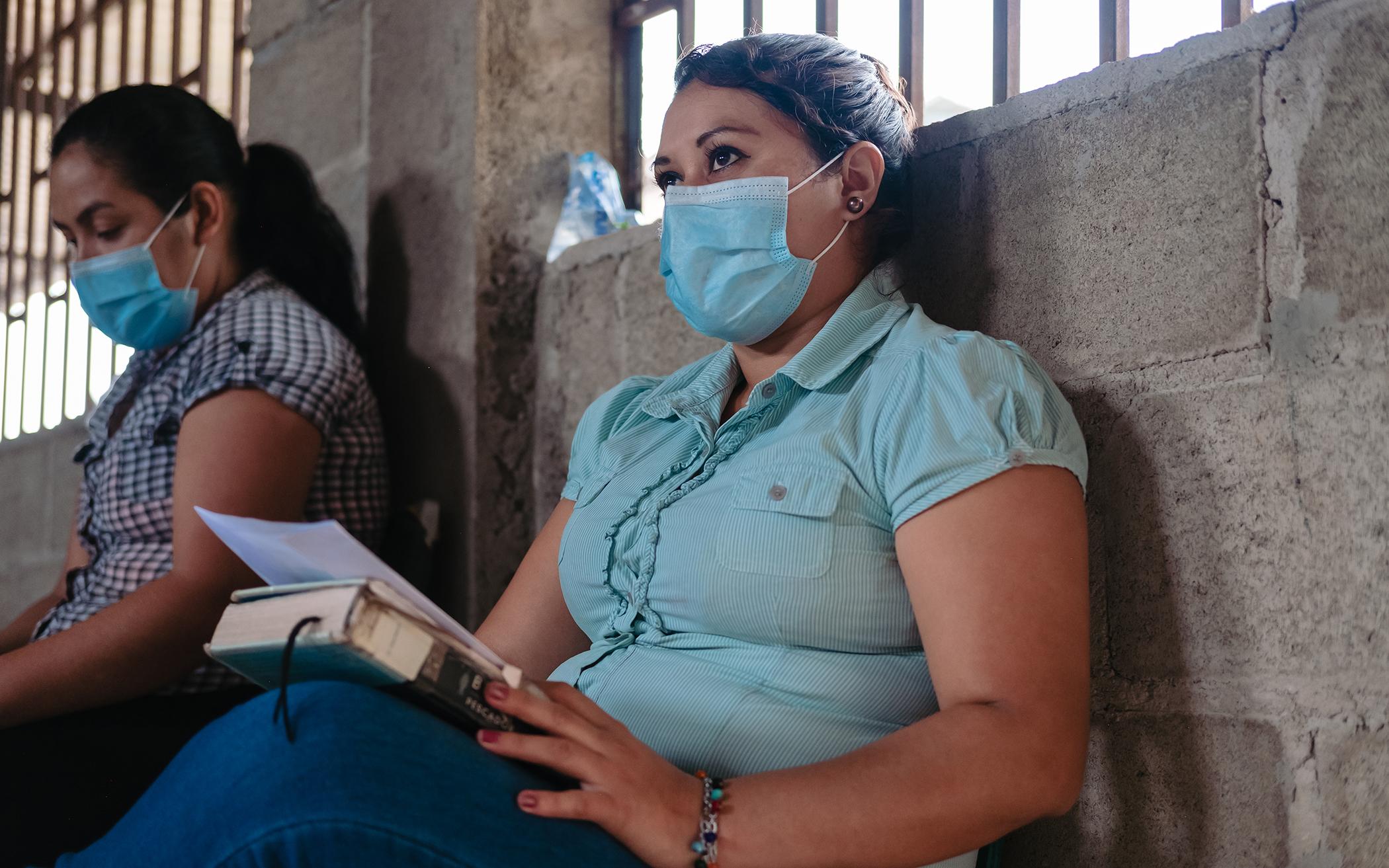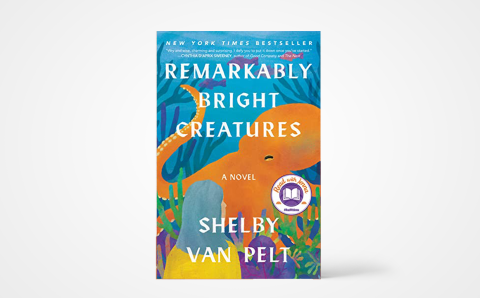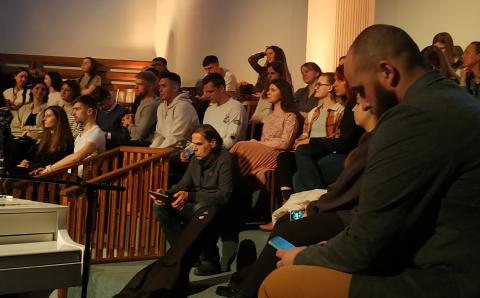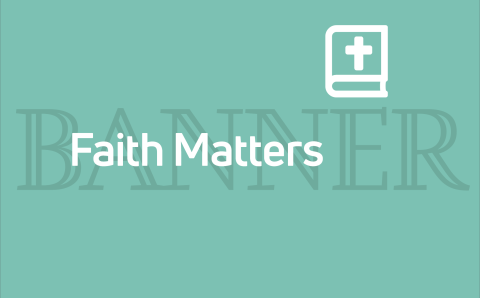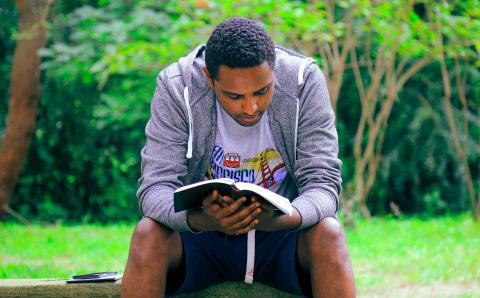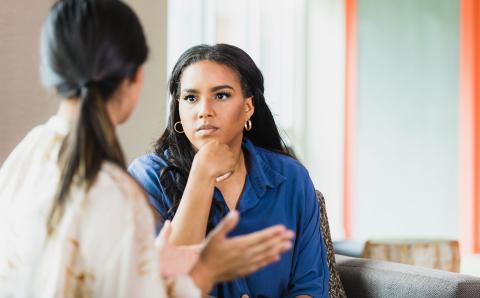I joined World Renew during COVID-19 lockdowns. As restrictions eased in July 2022, I had the opportunity to join a learning trip to Honduras. Seeing World Renew’s community development work in motion gave me new knowledge and a better understanding of the injustices in our world. But there is one memory that stands out.
In a room in a community building in the Honduran capital, Tegucigalpa, several women gathered to share with our group about all they gained from trauma healing sessions facilitated by World Renew’s local partner, the Association for a More Just Society. Through a translator, some of the women shared their testimonies, telling about the scars inflicted on them by abusive partners or the shame they felt because of their alcohol abuse. As we said goodbye, one woman came up to me and hugged me. Smiling, she put her forehead against mine, and when I smiled back, she squeezed me tightly. She spoke no English and I no Spanish, but in her embrace, I understood her deep appreciation and the hope that healing from trauma had brought in her life.
About 13% of people worldwide have a mental health or substance use disorder. According to the World Health Organization, around 450 million people currently live with mental illness, making it the leading cause of disability worldwide. About 240 million people use alcohol problematically, and 15 million use injection drugs. And beyond these numbers, families and loved ones are also affected.
As World Renew walks alongside people living in poverty, we understand that for communities to achieve long-term food security and income stability, mental health issues must be addressed.
Young single mothers in Lusaka, Zambia, are so ostracized by their families and communities that many—such as Joyce, who became a mother at age 15—contemplate ending their lives. A World Renew trauma healing program implemented through a local church in her community gave Joyce the tools to take on a new challenge: agricultural college. Now participating in an internship, Joyce feels useful and able to provide for her family.
In Laos, an addiction to opium left Kheo weak and unable to work. Her family did not know what to do. World Renew Laos helped get Kheo into a drug rehabilitation program. Today she is healthy and works to support her family.
Support for those living with mental health conditions, trauma, and substance addiction is like the Honduran woman’s hug: a warm and comforting acknowledgement of hope.
About the Author
Laurisa O-Brien is a Communications Writer with World Renew. World Renew works in about 30 developing countries worldwide, living justice, loving mercy, and serving Christ.

